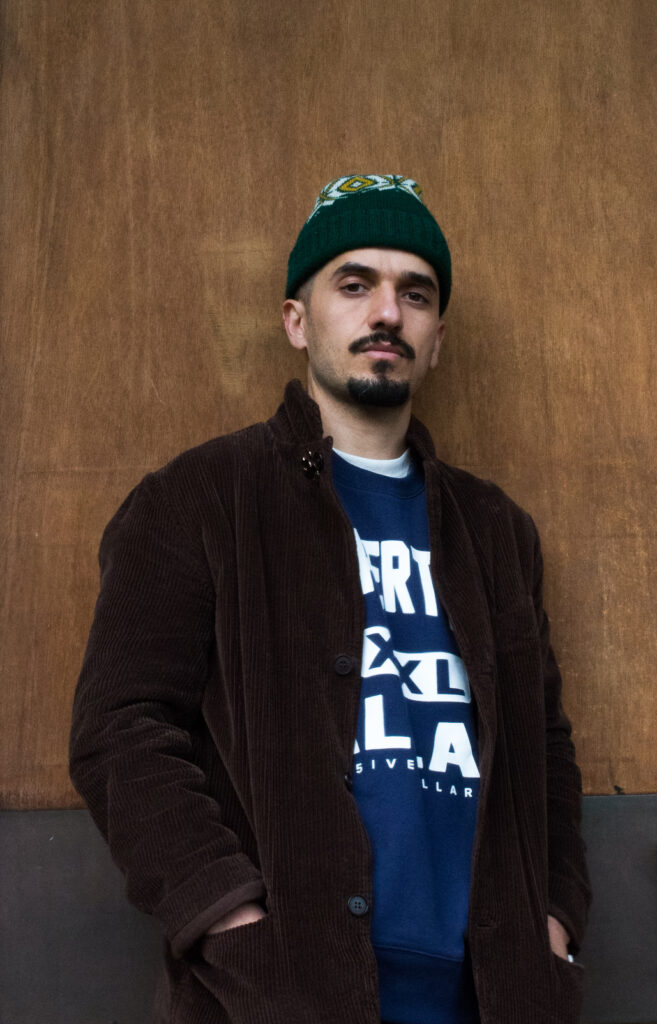
Santhosh Daniel was running the Global Film Initiative when he got a call out of the blue from San Francisco Public Defender Jeff Adachi, who was a documentary filmmaker on the side. Adachi wanted to talk about his idea to create a series of films that broke down the whole process of legal defense for people who cannot afford any other kind.
Adachi, who died suddenly at age 59 in early 2019, never lived to see this idea through, but it was good enough to live on without him. After Adachi’s death, Daniel proposed the Adachi Project, an initiative to create and produce original stories by public defenders and their clients that will launch Thursday, Feb. 4, in what Daniel describes as “the first endeavor of its kind by a public defender’s office in the United States.”
Three short films are already in the can and will roll out this month online through Defender — a film, art and media project about the urgent work of the public defender.
“We created the Adachi Project to lift up voices of those people who often don’t get heard when it comes to the criminal legal system,” says Daniel, who runs the creative strategy group Compound.

The actual filming and editing is by Even/Odd, the studio known for “Exit 12,” a film about the aftermath of war from the point of view of a combat war veteran who turns to ballet. That film won the Jury Award for documentary shorts at South By Southwest in 2019 and was distributed by Fox Searchlight.
Even/Odd also produces the ongoing multi-platform project “The Happy Birthday Project,” about families coping with the first birthday of a loved one who died in an altercation with law enforcement.
“They know how to tell these stories,” Daniel said. “They were our first and only choice to be a partner in the Adachi Project.”
The first offering to be released in a suite of films titled “Defender, Vol. 00,” is an intense 11-minute film shot at a Tenderloin halfway house, where people on parole live while readjusting to civilian life.

“It represents the urgency of this project because its themes capture the seminal reckonings that we as a society are facing at this current moment in America,” says Mohammad Gorjestani, 37, co-founder of Even/Odd, which is based in San Francisco and Los Angeles.
Later this month, Defender will release “44 Years Later,” about the first day of freedom spent by Paul Redd of Oakland, after four decades in prison for murder.

Each film tells a single story from both the client’s side and the side of the attorney representing him or her, in language that has been deconstructed from legalese. These are not documentaries.
“We are trying to make emotional artistic work,” says Gorjestani, a first-generation immigrant from Iran who grew up in San Jose and graduated from Cupertino High School in 2002.
Though the filmmakers are independents, the films have institutional support, in the name of the San Francisco Board of Supervisors, which voted unanimously last December to approve the concept.
Five members of the public defender’s office are involved, topped by the public defender himself, Raju, and chief attorney Matt Gonzalez. Hadi Razzaq, managing attorney of the investigation unit, is working with the filmmakers to select cases and personal stories to develop. They will also appear in the films.

“No one is better suited than we are to get out the view of the system from the vantage point of our clients and the people who represent them,” says Raju, 52, and the only public defender in any county in California who is elected, not appointed.
Raju likes to tell the story that, what led him to pursue a job in the San Francisco Public Defender’s Office, was the KQED series “Presumed Guilty: Tales of the Public Defenders,” which featured Adachi and others in the office. Raju has seen it three times now.
“The film shows the everyday adrenalin-flowing, fast-paced life of a public defender,” he says. “It is really important to get across the flavor of the work we do and the humanity and resilience shown by our clients and their families.”
The difference between that project and this one is that the Adachi Project is both about the public defender’s office and by the public defender’s office, and the short films tell narrative stories.
“This is not just following attorneys around in their day to day and into court,” says Valerie Ibarra, who is part of the office team. “These films are evocative and bring people into the experiences of our clients.”
There is not a budget per film and no public funds will be used. Both Compound and Even/Odd have donated their time, expertise and studio equipment. Defender is a community of as many as 25 collaborators, including writers, filmmakers, graphic designers, photojournalists and artists.
“Everyone has a skill set that they should consider contributing toward making their community better,” Gorjestani says. “We need to transcend beyond just showing up to protests and posting things to social media.”
The Adachi Project has set a fundraising goal of $100,000 for the first year, but the project is more ambitious than that. An annual budget of $500,000 sounds about right.

“The big-picture hope is that we raise enough funds to put out out new media and content on a monthly basis,” Daniel says. “The goal is to create media that has the power to humanize those affected by the system and have a real impact on influencing policy in the criminal legal system.”Raju says there will be a subtext to the films that hint at the need for changes to the legal system: “Policy reform should be shaped by real-life stories, not numbers that can be taken out of context.”
Related articles
Late Public Defender Jeff Adachi was also a passionate filmmaker